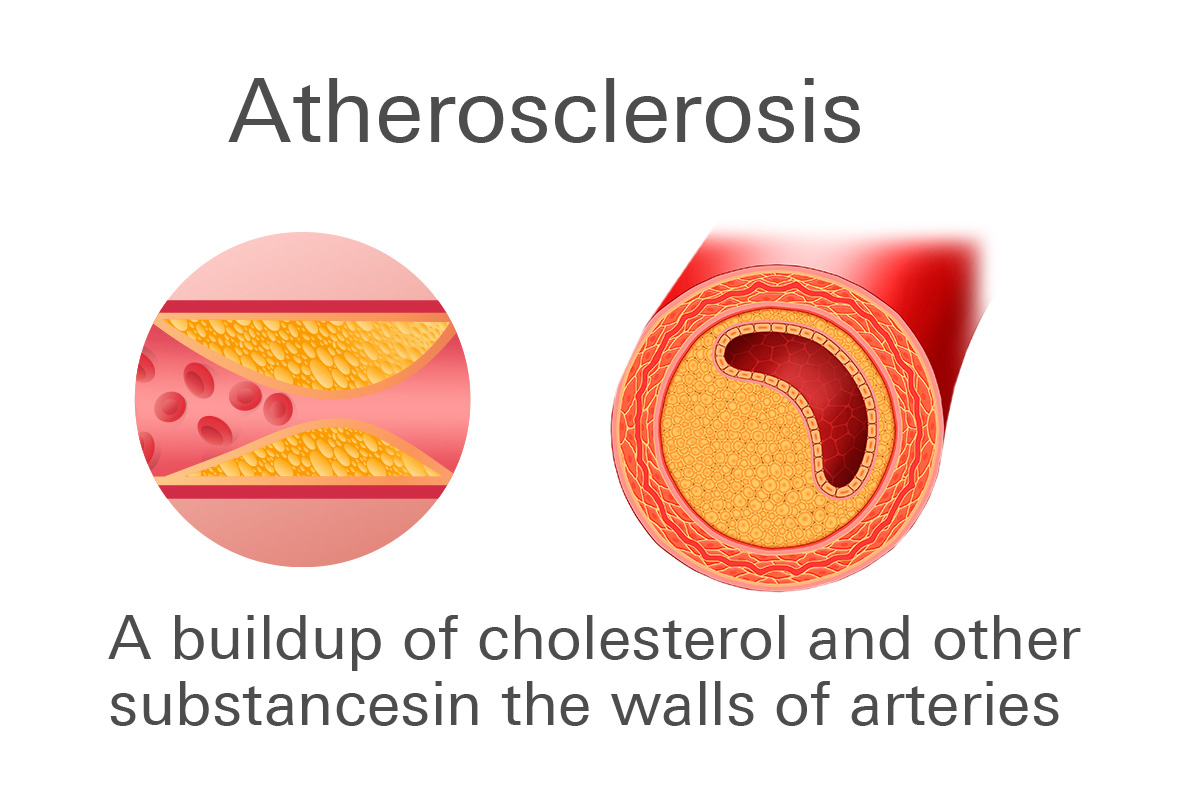Cholesterol and Inflammation
Cholesterol and Inflammation: The Fuel and the Spark of Cardiovascular Disease
Cardiovascular disease, which includes heart attacks and strokes, is the leading cause of death in the world. While many factors can contribute to the development of cardiovascular disease, two primary culprits are high cholesterol levels and inflammation.
While cholesterol may be the "fuel" for a heart attack or stroke to occur, inflammation may be the trigger that causes it to happen.
Cholesterol and Lipids: The Fuel of Cardiovascular Disease
Cholesterol is a waxy substance found in the blood that is essential for the proper functioning of the body. However, high levels of cholesterol, particularly low-density lipoprotein (LDL) cholesterol, can contribute to the development of atherosclerosis. Atherosclerosis occurs when cholesterol and other substances build up in the walls of arteries, forming plaques that can eventually lead to heart attacks and strokes.

Poor diet and low levels of exercise can contribute to the development of high cholesterol levels . A diet that is high in saturated and trans fats, for example, can increase levels of LDL cholesterol in the blood. Regular exercise, on the other hand, can help to lower LDL cholesterol levels and reduce the risk of cardiovascular disease.
Inflammation: The Spark of Cardiovascular Disease
Inflammation is a natural process that occurs in response to injury or infection. However, chronic inflammation, which can occur in response to lifestyle factors such as poor diet and lack of exercise, can contribute to the development of cardiovascular disease.
Recent research has suggested that inflammation may be the "spark" that causes cardiovascular events such as heart attacks and strokes to occur. In a study published in the Lancet, titled “Inflammation and cholesterol as predictors of cardiovascular events among patients receiving statin therapy: a collaborative analysis of three randomised trials researchers”, found that inflammation strongly predicted mortality after statin use in patients with high cholesterol levels. The study suggests that while cholesterol may be the "fuel" that is needed for a heart attack or stroke to occur, inflammation may be the trigger that causes it to happen.
The 2023 study suggests that inflammation as a major factor in atherosclerosis. It suggests that in high-risk patients who already receive statin therapy, healthcare providers should strive to reduce excessive inflammation as opposed to adding additional layers of LDL reduction.
LoDoCo: The First Anti-Inflammatory Cardioprotective Drug Approved in 2023
In 2023, through a groundbreaking clinical trial, LoDoCo (colchicine) 0.5mg tablets was shown to reduce the risk of a cardiac event in patients with cardiovascular disease by 31%.
This study is important because this makes its the first anti-inflammatory medication to be shown to reduce ones risk of a cardiac event.
How LoDoCo Works: LoDoCo includes an ingredient named colchicine, which plays a crucial role in combating inflammation within your body. It targets the fundamental functions of specific cells, such as neutrophils—a vital type of white blood cell in your immune system. By reducing the activity of these cells, colchicine effectively minimizes their contribution to inflammation.
Moreover, colchicine acts on other immune cells by disrupting particular internal mechanisms, resulting in lowered production of proteins that usually trigger inflammation.
A significant advantage of using LoDoCo, as research has shown, is its capacity to lower the concentrations of a blood marker called high-sensitivity C-reactive protein, commonly elevated in inflammatory conditions. Although LoDoCo's precise method of safeguarding against major cardiovascular issues remains under investigation, its efficacy in reducing inflammation and associated risks is well-documented.
Living a Healthy Lifestyle: Managing Cholesterol and Inflammation
The good news is that there are steps that individuals can take to manage their cholesterol levels and reduce inflammation, thereby reducing the risk of cardiovascular disease.
A healthy diet that is low in saturated and trans fats and high in fruits, vegetables, and whole grains can help to lower LDL cholesterol levels and reduce inflammation. Regular exericse, maintaining a healthy weight, and quitting smoking can also help to manage cholesterol and inflammation.
For individuals who have high cholesterol levels or are at risk of cardiovascular disease, statin medication can be an effective tool for reducing the risk of cardiovascular events. However, it's important to work closely with a healthcare provider to determine the best course of treatment, taking into account factors such as age, overall health, and potential risks and benefits of medication.
In addition to medication, there are also supplements and other natural remedies that may help to manage inflammation and reduce the risk of cardiovascular disease. For example, omega-3 fatty acids found in fish oil have been shown to have anti-inflammatory effects and may reduce the risk of heart disease. Other natural remedies that may help to manage inflammation include turmeric, ginger, and green tea.
Reducing Your Risk
Managing cholesterol and inflammation is critical to reducing the risk of cardiovascular disease. By adopting a healthy lifestyle that includes a healthy diet, regular exercise, and stress management, individuals can reduce their risk of developing high cholesterol levels and chronic inflammation. It's important to work with a healthcare provider to determine the best course of treatment, and to take steps to manage cholesterol and inflammation through lifestyle factors such as diet and exercise.